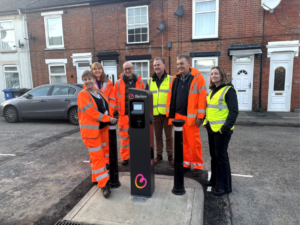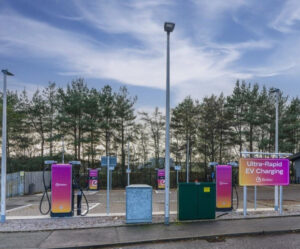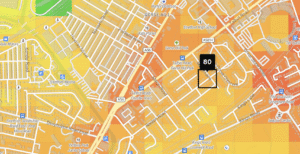Should they win a General Election, the Labour Party would spend £3.6bn on an expansion of the UK’s electric vehicle (EV) network and would launch a scrappage scheme for motorists to trade in their polluting cars for an EV.
The charging network would be made up of ultra-fast charge stations along motorways and a combination of rapid and ultra-fast charge stations in towns and cities.
Electricity would be generated from renewable sources and distributed by the National Grid, which Labour plans to nationalise.
Shadow Business Energy and Industrial Strategy Secretary Rebecca Long-Bailey said the Conservative government has ‘sat on their hands’ regarding air pollution.
She said: ‘Their inaction on electric charging infrastructure has held back the transition to cleaner vehicles and put our industry behind the curve.’
The proposed scrappage scheme would apply for owners of vehicles older than ten years old and could save around £2,000 off the cost of a new EV.
The scheme would initially last for a year in an attempt to take 400,000 of the most polluting cars off the road.
Rebecca Long-Bailey added: ‘Tackling the climate emergency provides an opportunity to upgrade our economy and way of life.
‘Instead of driving old polluting cars, we want ordinary people to have the ability to drive to new, clean and green cars.
‘The air in our cities will be cleaner and the UK’s carbon emissions will be lower. Increased demand for electric cars will also give a much-needed boost to our automobile industry, creating thousands of new jobs.’
Labour also announced that they would spend £300m on a publicly-owned and local authority-run community car-sharing clubs, putting 30,000 electric cars on the streets for hire.
A DfT spokesperson said: ‘We are committed to UK leadership in electric vehicles and having the best electric vehicle infrastructure network in the world with charging that is straightforward, hassle-free and as easy as refuelling a conventional vehicle.
‘We are continuing to accelerate the growth of electric vehicle infrastructure through a range of initiatives, including the launch of the £400m chargepoints infrastructure investment fund which will result in the installation of thousands of new rapid chargepoints across the UK, alongside the Go Ultra Low campaign, and our Road to Zero Strategy.’
Earlier this month, the coalition of city and local government leaders, UK100, called on the Conservative government to introduce a scrappage scheme which would be part-funded through a £1.5bn national network of Clean Air Zones.
They believe that the zones could raise upwards of £6.5bn, but only if they charged polluting private vehicles to enter them.
Photo Credit – Pixabay
















